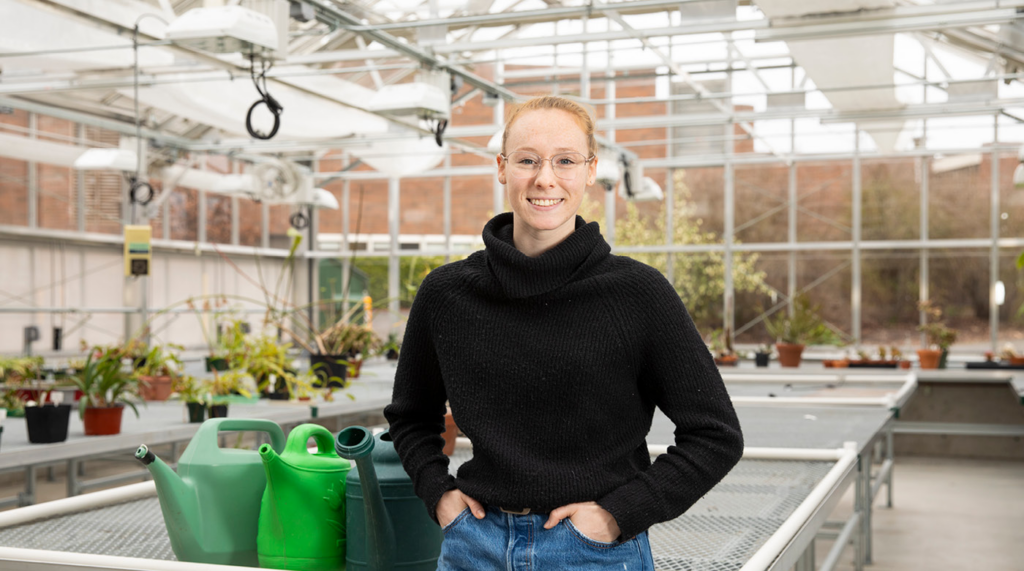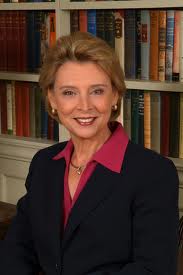Page 63 • (3,707 results in 0.039 seconds)
-
spirit of Rachel Carson, George and Helen Long's support for this series helps to bring leading experts in the fields of science and technology to campus to address PLU students, faculty, and our surrounding community.Learn MoreRevisiting Our Past Rachel Carson LecturersFrom climate change and food engineering to artificial intelligence and global health, our past presenters are experts in a wide array of fields.Learn More
-

touch Read Next Arctic exploration and climate change COMMENTS*Note: All comments are moderated If the comments don't appear for you, you might have ad blocker enabled or are currently browsing in a "private" window. LATEST POSTS Three students share how scholarships support them in their pursuit to make the world better than how they found it June 24, 2024 Kaden Bolton ’24 explored civics and public policy on campus and studying away in Oxford June 12, 2024 PLU welcomes new Chief Operating Officer
-
Issued! Marguerite Porete and A Mirror of Simple Souls 1:20-1:40 pm - Rebeca Salinas Rosaries on my Altar: Towards a Contemporary Mexican-American Women’s Position on Indigenous Spiritual Practices 1:40-2:00 pm - Katie Olson Lutheran theological responses to theodicy 2:00-2:20 pm - Nathan Buegler The ELCA’s Response to Climate Change In Light of Realized Eschatology 2:20-2:40 pm - Marit Gjelde-Bennett An Unexpected Ally in Women’s Health: The Role of Religious Language in Medicine for the Reclamation
-
, chosen from the following courses: ESCI 102: General Oceanography (4) ESCI 103: Earthquakes, Volcanoes and Geologic Hazards (4) ESCI 104: Conservation of Natural Resources (4) GEOS 105: Meteorology (4) ESCI 106: Geology of National Parks (4) ESCI 107: Global Climate Changes (4) PHYS 110: Astronomy (4) PHYS 125: College Physics I (4) PHYS 126: College Physics II (4) PHYS 153: General Physics I (4) PHYS 154: General Physics II (4) Computer Science & Mathematics 4 semester hours, chosen from the
-

centered on screen] Professor Ramos: What does it take to understand climate change, or how human activity impacts geological formations, or how different cultural beliefs or political views shape our relationship to the earth. It takes interdisciplinary expertise and a robust place-based learning curriculum. These complex questions can’t be answered by a single discipline or field. [video: All three professors framed on screen] This is why, what makes our major unique in the region is in our last name
-

focusing on genetic engineering mechanisms to combat environmental stressors — such as flooding and drought — in important agricultural crops … food security is being threatened by the severe weather patterns as a result of climate change. One potential solution to the severe crop losses, loss of food security and economic hardship for growers is gene editing to improve crop resilience. In my project, I specifically focused on genes that could be edited into crops — such as wheat or barley that would
-

problems. Each year she covers the modeling process and techniques, then asks students what they’re interested in. “It’s an ocean of knowledge,” she said. “You can pretty much model anything.” In her own research, Zhu uses math to understand underlying mechanisms in developmental biology, such as pattern formations in butterflies, the kind of unexpected application that opens students’ minds to possible connections—not only between math, physics and computer science, but also the life sciences and
-

. Gregoire also reinvigorated the state’s Department of Ecology and led the state to adopt Clean Air standards in 2009. During her tenure, Gregoire passed laws that made the state a national leader in climate-protection policy, leaving Washington an environmental treasure for future generations. Since she left office, Gregoire has been anything but retired from the public spotlight. She is on the board of the Fred Hutchinson Cancer Research Center and is chair of the Export Import Bank Advisory Committee
-

of that person, which asks us ‘what do we think about that.’” The current political climate is one reason Torvend wanted to share Oelbermann’s story. “I am well aware of the fact that we have people in office today who bring with them incredible hostility towards LGBT people,” Torvend said.Cue the political side of the religion-politics theme. Growing up, Torvend’s family was very politically active. His father was chair of the Lutheran Services in northern California when Ronald Reagan was
-
Justice - RL, VW This course offers in-depth exploration of how religious communities and religious leaders are responding to anthropogenic climate change and how the study of religion and theology shed light on political and moral debates on the issue. Special attention is paid to Christian perspectives, but texts are included from other religious traditions and from multiple global, racial, and socio-economic contexts. Students will create a research-based final project developing and defending a
Do you have any feedback for us? If so, feel free to use our Feedback Form.


